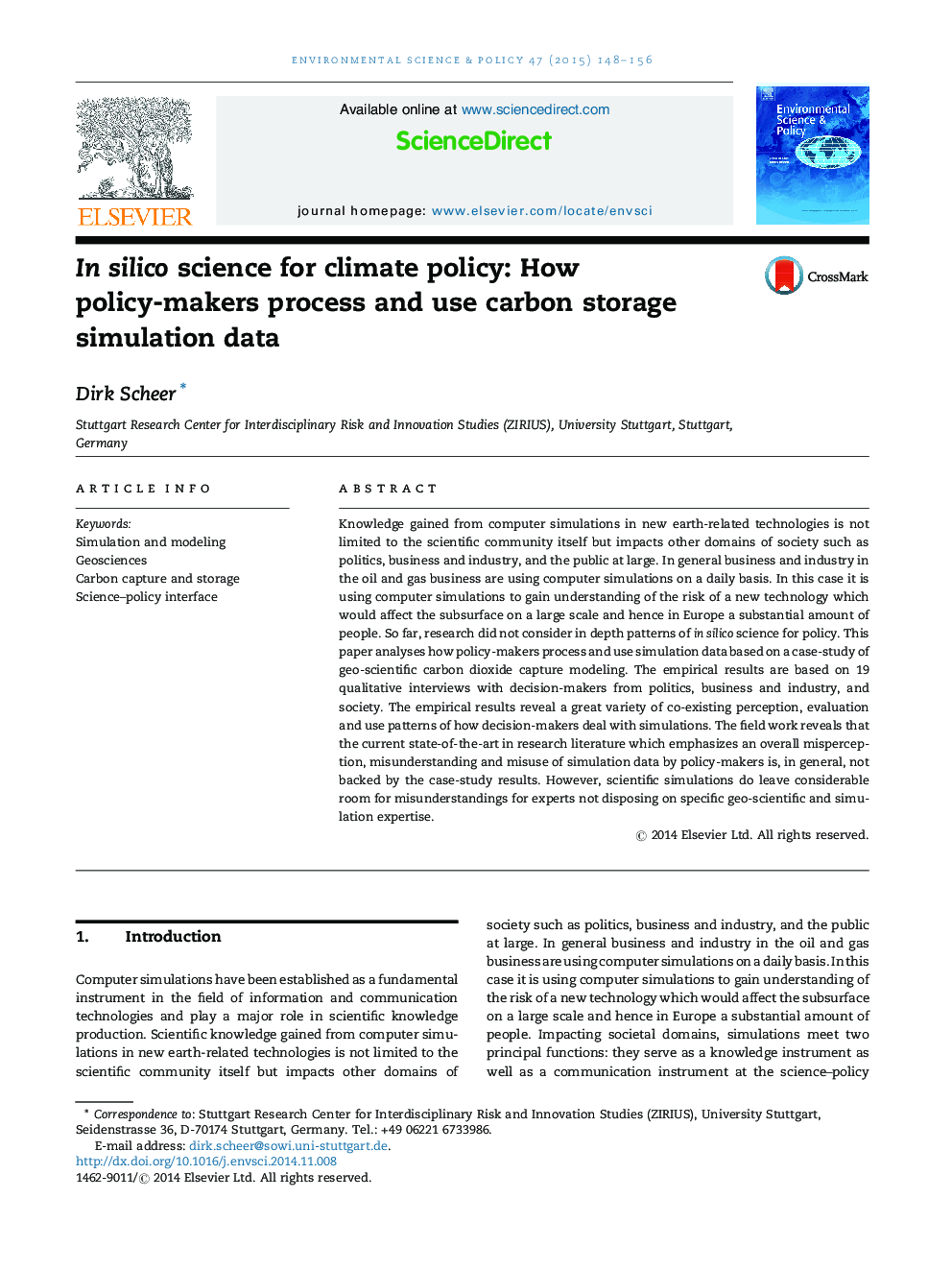| Article ID | Journal | Published Year | Pages | File Type |
|---|---|---|---|---|
| 7467601 | Environmental Science & Policy | 2015 | 9 Pages |
Abstract
Knowledge gained from computer simulations in new earth-related technologies is not limited to the scientific community itself but impacts other domains of society such as politics, business and industry, and the public at large. In general business and industry in the oil and gas business are using computer simulations on a daily basis. In this case it is using computer simulations to gain understanding of the risk of a new technology which would affect the subsurface on a large scale and hence in Europe a substantial amount of people. So far, research did not consider in depth patterns of in silico science for policy. This paper analyses how policy-makers process and use simulation data based on a case-study of geo-scientific carbon dioxide capture modeling. The empirical results are based on 19 qualitative interviews with decision-makers from politics, business and industry, and society. The empirical results reveal a great variety of co-existing perception, evaluation and use patterns of how decision-makers deal with simulations. The field work reveals that the current state-of-the-art in research literature which emphasizes an overall misperception, misunderstanding and misuse of simulation data by policy-makers is, in general, not backed by the case-study results. However, scientific simulations do leave considerable room for misunderstandings for experts not disposing on specific geo-scientific and simulation expertise.
Related Topics
Physical Sciences and Engineering
Energy
Renewable Energy, Sustainability and the Environment
Authors
Dirk Scheer,
